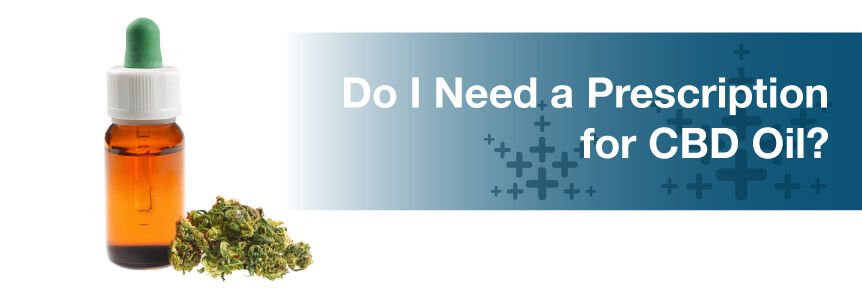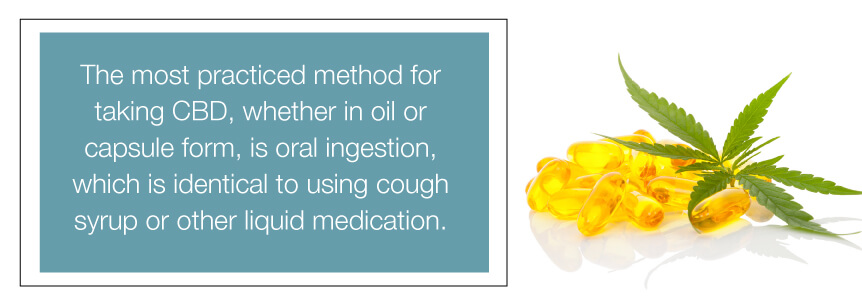
In the United States, the contrasting approach by state and federal governments to recreational and medical cannabis leaves many residents in confusion. The growing market for cannabidiol (CBD) oil adds to this confusion, as the product is available in states where medical and recreational marijuana is illegal. That’s why many recreational consumers, as well as qualifying patients, are asking, “Do I need a prescription for CBD oil?” The surprising answer is — NO.
Cannabis is available in many forms, from tinctures to edibles to dried flower. You’ll also find it as an oil, most often as CBD oil. The alternative is an oil with tetrahydrocannabinol (THC), another cannabinoid that tends to offer a more psychoactive experience than its counterpart, CBD. CBD oil tends to carry more favor with patients and recreational consumers because it delivers relief without effects that may affect day-to-day responsibilities, such as giving a presentation at work.
Patients also have success with using CBD oil for other conditions, like fibromyalgia.
A topic of frequent discussion in the medical community are prescriptions versus recommendations for medical marijuana. While the terms appear interchangeable, U.S. legislation differentiates between the two, preventing licensed medical cannabis physicians from issuing a prescription for CBD oil, as well as any other type of medical marijuana. Instead, you can only receive a recommendation for medical cannabis — in other countries, some governments permit prescriptions for medical weed.
It’s essential to understand the difference between the two, whether as a patient or caregiver, as prescriptions for medical marijuana are not only fraudulent but also unusable. They’re not accepted by dispensaries or pharmacies, which leaves you or your loved one without the medicine you need to ease symptoms. In the case of CBD oil, however, you do not need a physicians’ recommendation to purchase it.
As a patient, caregiver or consumer, it’s always a smart decision to learn if recreational or medical cannabis is legal in your area, and if so, why it’s legal. By taking an investigative approach to the availability of marijuana, you can ensure that you’re within your rights when purchasing it for use, whether from a dispensary or reputable online storefront.
The reason why CBD oil is available, sans recommendation, is due to the following legislation:
As producers adhere to the above legislation, any hemp-based product, like CBD oil, markets as a supplement versus an over-the-counter medicine.
If you’re considering CBD oil for you or a loved one, remember that it’s often available through reputable online stores. For residents of states where medical cannabis is legal, however, it’s advised that you meet with a licensed medical cannabis physician to receive your medical marijuana card, which will let you purchase more potent forms of CBD oil from licensed dispensaries.
For many patients and families, however, getting a card is not an option. If you’re shopping online, assess a company and their products through the following steps:
Inquire about the following product information too:
If the company avoids transparency, features negative reviews and prevents requests for additional information, look for another provider of CBD oil.
Following the arrival of your medicine, you’ll need to determine how you’ll use it. As CBD oil is versatile, it provides several administration options, including:

Depending on your selected administration method, your dosage will vary.
At MarijuanaDoctors.com, we’re passionate about providing accurate, up-to-date information on cannabis. Whether you’re a patient, physician or caregiver, our resources will provide you with the valuable information you need when researching the uses and types of marijuana available, as well as the legality of cannabis products in your area, such as CBD oil from hemp.
Learn more about CBD oil, as well as the differences between recommendations and prescriptions, by visiting our blog or talking with your doctor!
No Information on MarijuanaDoctors.Com should be used to diagnose, treat, prevent or cure any disease or condition. You can view our Full Disclaimer here.